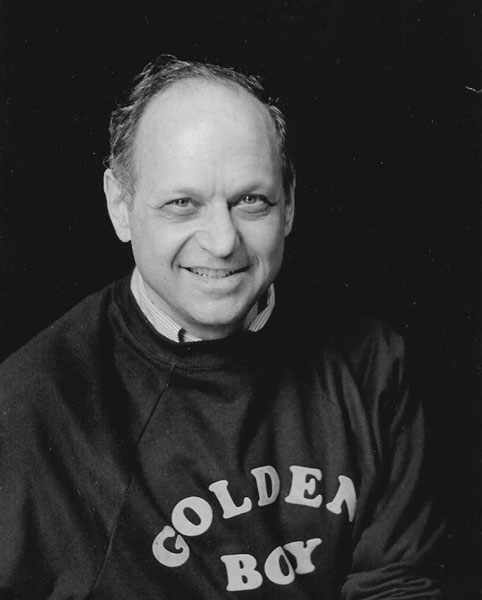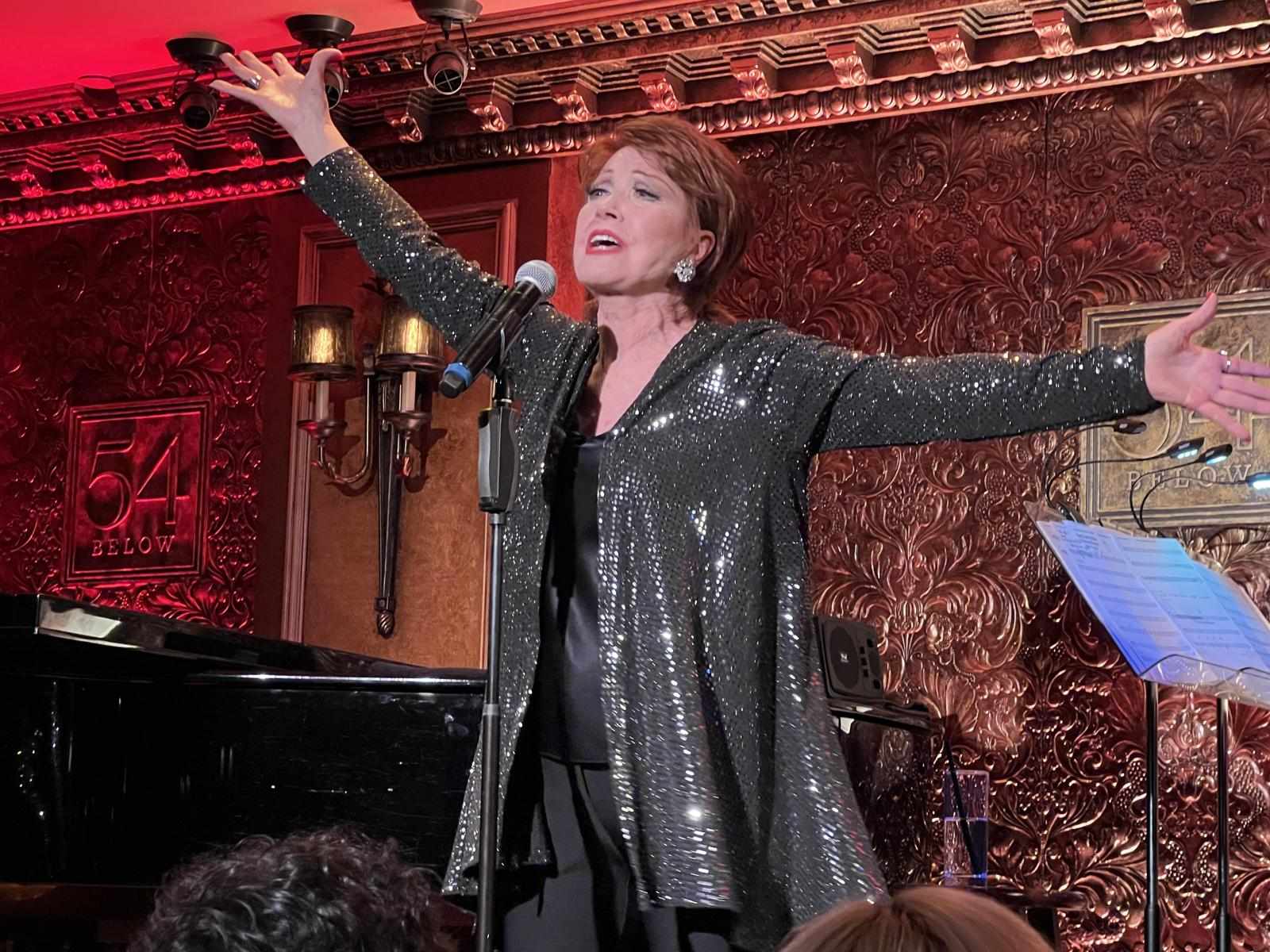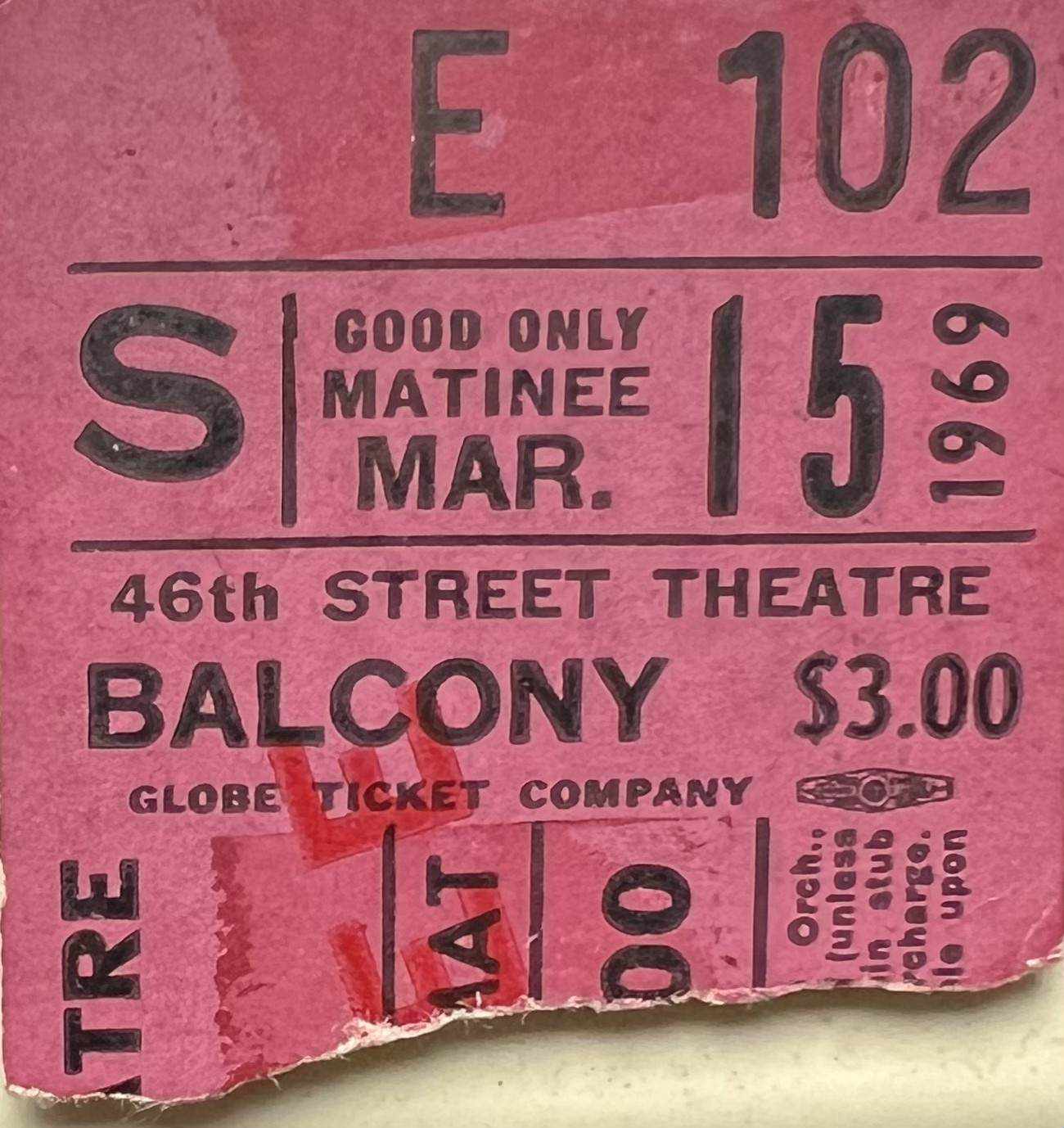
You know the milestone, right? Of course you do.
Yeah, it's my birthday today. I'm proud to have made it, too. It sure as hell seemed far away in 1967 when the song came out and I was only ten years-old, but here we are more than half-a-century later. 😌 And for the purposes of this column, in the way that some people like to see what the front page of the newspaper was like on the day of their birth, I'll be taking a look at the Broadway ABC's and see what shows were playing the day I entered this world (in Brooklyn — not all that far from Times Square). Needless to say, considering this was what is now fondly referred to as Broadway's Golden Age, it's an embarrassment of riches. Just look at some of the titles and actors among these twenty-eight shows: Auntie Mame, Bells Are Ringing, Damn Yankees, Inherit the Wind, Li'l Abner, Long Day's Journey into Night, My Fair Lady, The Diary of Anne Frank and The Most Happy Fella, with stars like Rosalind Russell, Cyril Ritchard, Judy Holliday, Ethel Merman, Paul Muni, Fredric March, Charles Laughton, Eli Wallach, Edward G. Robinson, Gena Rowlands, Robert Preston, Ralph Richardson and Beatrice Lillie.

One of the first things that caught my attention is that my favorite actor, Robert Preston, was on Broadway — but not in The Music Man — which opened nine months later in December of 1957. At the time, he was appearing in a straight play, The Hidden River, which had opened to middling reviews in January and would close twelve days later on March 16th. Little could the unemployed Preston imagine that in a short time he'd be auditioning for the role of Professor Harold Hill which, by the time it opened in December, would be a Christmas present that would change his life forever forward at age thirty-nine.

The biggest holdover was Jerome Lawrence and Robert E. Lee's Inherit the Wind that was still starring Paul Muni, who created the role of Henry Drummond/Clarence Darrow two years earlier when it opened in 1955. Forced to leave four months into its run due to ill health (a cancerous tumor cost him his left eye), he triumphantly returned to the show three months later and went on to stay for more than a year. Both he and his co-star, Ed Begley, won every significant award as Actor and Supporting Actor back when there were other plaudits besides the Tonys.

Another long running show was the musical hit Damn Yankees, which opened a month after Inherit the Wind in May of 1955. and went on to win the Tony Award for Best Musical. Its stars, Gwen Verdon and Ray Walston, had each won Tonys for their performances as Lola and the Devil but had moved on by this point. Their roles were being played by Gretchen Wyler (a perennial standby and go-to gal in musicals) and Howard Caine, an actor most people of my generation and older would remember from numerous appearances on TV sitcoms, including six seasons as Gestapo Major Hochstetter on Hogan's Heroes.
It should come as little surprise that the toughest ticket in 1957 among all these shows was for one that opened a year prior. Not only was My Fair Lady still going strong, but five weeks hence it would be crowned Best Musical at the April 21st Tony Awards ceremony. Rex Harrison and Julie Andrews were still starring as Higgins and Eliza, though the news and gossip column on the same page as the Times' ABC's had an announcement that Mr. Harrison was returning to the show that very night after a short vacation. In that same article was a mention that New Girl in Town was going into rehearsal on my birth date, a musical version of Eugene O'Neill's Anna Christie which was to star Gwen Verdon and Thelma Ritter, who would go on to win twin Tony Awards in a tie for Best Actress in a Musical the following season. And lastly, the same brief article also contained the news that Rosalind Russell as Auntie Mame "has extended her contract to January 1958. The screen version will be filmed by Warner Brothers after Miss Russell leaves the Broadway cast." This proved true, and for her efforts, Miss Russell received an Academy Award nomination. In a head-scratcher, she received neither the Tony nor the Oscar for her widely acclaimed, career-defining performance.

The one show among this two dozen that had yet to open by March 4th was Good as Gold, which had an impressive trio of male stars above the title: Roddy McDowell, Paul Ford and Zero Mostel. Its author, John Patrick, whose previous effort was the Tony and Pulitzer Prize winning Teahouse of the August Moon, offered some weak tea this time around. Good as Gold's opening night was March 7th and it closed on the 9th. Looking into this rarity a little, I was heartened to discover that Mostel probably had a field day with the role of Doc Penny, described in Jared Brown's biography of the actor as "a jailhouse philosopher whose wooden leg was equipped with a spigot from which he could draw an ample supply of whiskey."
And lest it be forgot that at this time Hollywood's blacklisting of supposed Communists was still in full force. Zero Mostel was among many actors, writers, producers and directors brought in front of the House Un-American Activities Committee in Washington, D.C. and this was his first gainful employment since his testifying in October 1955. Also on Broadway at the time were fellow blacklisted actors such as Lee Grant (A Hole in the Head), Burgess Meredith (Major Barbara) and Jack Gilford (The Diary of Anne Frank). If it weren't for theatre, they'd have all been working at Woolworth's.
These ABC's also offer two examples of a dying breed — the last vestiges of vaudeville. Jerry Lewis at the Palace was an extended version of Mr. Lewis's nightclub act that featured musical variety performers TV audience were then enjoying weekly on The Ed Sullivan Show. At this point in 1957, Lewis was still best known as the latter half of the team of Martin & Lewis and had yet to score in films on his own. In fact, The Delicate Delinquent, his first film without Dean Martin, opened two months later in May and was a hit, the beginning of a string of comedies that would go on to define Lewis's singular career as a producer-writer-director. For his Palace act, which ran a month, among his characterizations were, according to the review in the New York Times, "a Japanese troubadour, with protruding teeth, spectacles and a little black skullcap on his head... Crossed eyes, mispronounced words and wobbly legs can go only so far for a chuckle."
The second such revue bore a title that hadn’t meant much to theatergoers for many years: The Ziegfeld Follies. Once considered the apex of entertainment (having begun on Broadway in 1907), this final edition, staged twenty-five years after the Great Ziegfeld's death, starred the outrageous British musical theatre star Beatrice Lillie. Though there was no shortage of talent contributing to the songs and sketches, it was not a success, in spite of the efforts of Dean Fuller and Marshall Barer (who would soon go on to write Once Upon a Mattress) and composers and lyricists Sammy Fain, Carolyn Leigh and Howard Dietz. Supporting Miss Lillie was the comedian Billy DeWolfe and Carol Lawrence, who in six months' time would star as Maria in the original production of West Side Story.

Another form of entertainment represented was Uncle Willie, a minor comedy with a major star: Menasha Skulnik, the clown prince of the Yiddish Theatre. Such ethnic vehicles were soon to become a thing of the past and, in another decade or so, fade from Broadway altogether (the last of them may have been The Megilla of Itzik Manger in 1969). Crossover actors from Second to Seventh Avenue were few, but those that did were one-of-a-kinds: Herschel Bernardi, Molly Picon and, of course, Paul Muni. Menasha Skulnik, described in his New York Times obituary as "a sad-eyed, undersized comic" (he was 5' 4" and was said "to have weighed as much as a box of Ritz Crackers"), was sixty-seven in 1957 when he played Uncle Willie. He would continue working until the age of eighty when he took ill out of town while trying out a new Broadway play, dying a few months later.

The most significant drama on the rialto was Eugene O'Neill's swan song, Long Day's Journey into Night, which would win the Tony Award and Pulitzer Prize for Best Play. In the spring of 1956, after the enormous success of an off-Broadway revival of The Iceman Cometh, the playwright's widow, Carlotta, gave the young Ted Mann and Jose Quintero, who respectively produced and directed Iceman, the rights to bring Long Day's Journey to Broadway in the fall. Over her husband's strict instructions that it not be produced until twenty-five years after his death, Mrs. O'Neill was so moved by Mann and Quintero getting Iceman right (as its failure ten years earlier in its original Broadway production had wounded O'Neill terribly), she gave them the rights to Long Day's Journey. Now the triumvirate of Mann, Quintero and Jason Robards Jr., who had become an overnight sensation as Hickey in Iceman, would be joined by Fredric March, his wife Florence Eldridge and Bradford Dillman to portray the tormented members of the Tyrone family, based entirely on O'Neill's mother, father, brother and himself. Those who saw this original Long Day's Journey have never forgotten its raw emotion and exquisite ensemble playing.

And there's still more! Judy Holliday in Bells Are Ringing, written for her by her pals Betty Comden and Adolph Green, with a score by Jule Styne, directed by Jerome Robbins and co-choreographed with Bob Fosse. Insane talents all. And what about Ethel Merman in Happy Hunting, her not-so-happy twelfth Broadway musical (lucky thirteen, came two years later). By most every measure it was no Gypsy (Brooks Atkinson in the New York Times wrote Happy Hunting was "put together with a minimum of originality and enterprise"), but with Ethel's name over the marquee it managed to eke out a year-long run (though she and co-star Fernando Lamas were at each other's throats the entire time).
Bottom line: if you couldn’t get into My Fair Lady in 1957, you could still have a fun time at the matinee of a so-so musical starring Ethel Merman and sit in luxury in any orchestra seat at the Majestic for only $4.80 a ticket. Those were the days.

If you enjoy these columns, check out Up in the Cheap Seats: A Historical Memoir of Broadway, available at Amazon.com in hardcover, softcover and e-book. And please feel free to email me with comments or questions at Ron@ronfassler.org.





















Write a comment ...